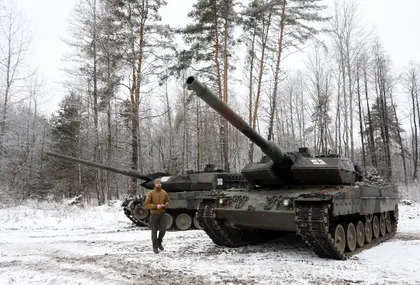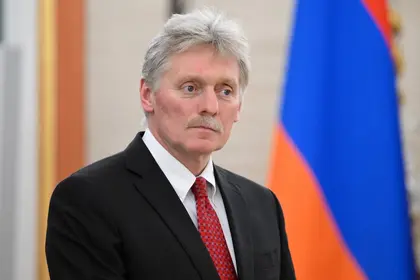In its response to Zaluzhny’s Economist interview, the Kremlin's spokesman, Dmitriy Peskov, on Thursday denied a claim from Kyiv’s most senior military official that the nearly two-year conflict in Ukraine had reached a stalemate.
“No, it has not reached a deadlock,” Kremlin spokesman Dmitry Peskov told reporters, adding: “Russia is steadily carrying out the special military operation. All the goals that were set should be fulfilled.”
JOIN US ON TELEGRAM
Follow our coverage of the war on the @Kyivpost_official.
What did Zaluzhny actually say in his latest interview?
Valery Zaluzhny, the head of Ukraine's Armed Forces, said that the situation on the front lines has "reached a deadlock". He warned that the ongoing Ukrainian offensive is at risk of evolving into a protracted positional warfare that could extend for years.
Just like in the First World War, we have reached the level of technology that puts us into a stalemate," he told the Economist, adding that: "There will most likely be no deep and beautiful breakthrough."
General Zaluzhny believes a significant technological breakthrough is needed to change the situation, and he doesn't anticipate any rapid or substantial advancements.
“The simple fact is that we see everything the enemy is doing and they see everything we are doing. In order for us to break this deadlock, we need something new, like the gunpowder which the Chinese invented and which we are still using to kill each other,” he added.

Sweden Pledges New $1.2B Military Package for Kyiv
Given that a technological breakthrough is not expected in the near future, the Ukrainian army can only continue the offensive, maintaining the initiative in order not to allow the war to become positional, Zaluzhny said.
“The biggest risk of an attritional trench war is that it can drag on for years and wear down the Ukrainian state,” he says.
Earlier, The Economist published an article by Zaluzhny, in which he stated that the war between Russia and Ukraine is moving towards a stalemate with grueling battles.
What are the goals of the ‘special military operation’ mentioned once again by Peskov?
No one actually knows for sure. They change from time to time.
At the outset of the full-scale invasion, President Putin outlined the war's objectives as the "demilitarization" and "denazification" of Ukraine, alongside the goal of rescuing people in the self-declared DNR (the so-called Donetsk People's Republic) and LNR (the so-called Luhansk People's Republic) from the "genocide."
Simultaneously, Moscow kept mentioning the “special military operation” goal of taking Ukraine’s capital of Kyiv in a matter of days or weeks or its goal of limiting NATO expansion.
As the situation on the ground evolved, the language used by Russian officials also shifted. Just two weeks into the war, the terms "demilitarization" and "denazification" faded from their statements.
Following the Russian withdrawal from Kyiv, it was announced that the primary military focus would be on the Donbas region.
Simultaneously, the Russian Foreign Ministry maintained that the war's aim was to diminish the influence of the United States and NATO.
At the same time, Dmitry Peskov, the Kremlin's press service head, still used to express hope for negotiations and a swift resolution to the conflict.
Has the war reached the 'stalemate' indeed?
The frontline between the Ukrainian army and Russian forces occupying the east and south of the country has barely moved since last November, despite repeated Russian strikes and a Ukrainian counteroffensive.
According to The Economist, in five months of the offensive, Ukraine managed to advance 17 kilometres. In turn, Russia has been fighting for Bakhmut for 10 months "to take the city [with an area of] six by six kilometres."
In the already mentioned interview, Zaluzhny pointed out that the offensive plans of the Ukrainian Armed Forces had initially anticipated a rapid advancement of 30 kilometres per day, with the aim of overcoming Russian defensive lines.
"If you refer to NATO textbooks and our initial calculations, it should have taken us just four months to reach Crimea, engage in combat, withdraw from Crimea, and re-enter and exit the region," the commander-in-chief quoted as saying by the Economist.
However, as The Economist reported, the Ukrainian army, equipped with Western technology, finds itself mired in minefields while facing the onslaught of Russian artillery and drone attacks instead.
You can also highlight the text and press Ctrl + Enter










